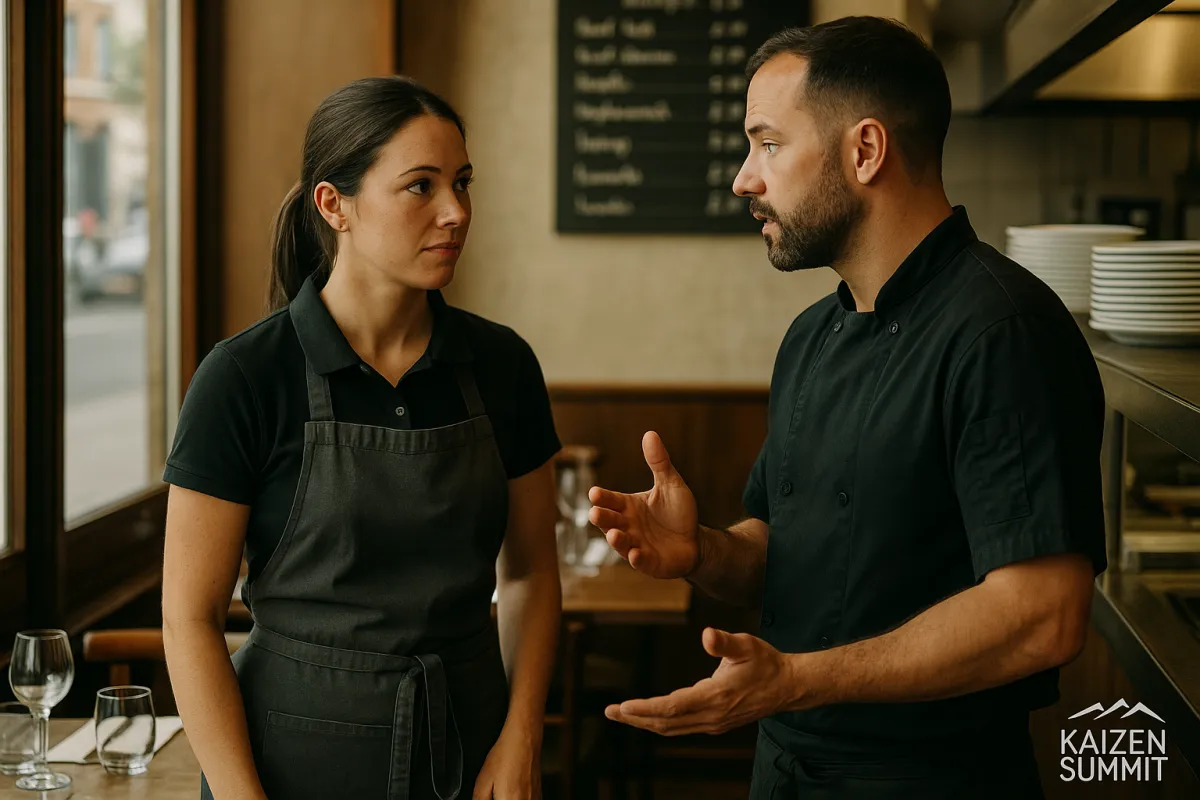
Communication Isn’t a One-Way Street
Communication Isn’t a One-Way Street
How to build better relationships through ownership, clarity, and connection
When people ask how to communicate in a relationship, they’re often hoping for a script—something to say that gets the result they want. But effective communication isn’t about having the perfect line. It’s about taking ownership of the interaction, detaching from emotion, and working towards a shared goal.
Most breakdowns in communication start with the same mistake: seeing the conversation as a win-lose situation. This mindset puts ego ahead of teamwork. Whether you’re speaking to a friend, partner, colleague, or manager, your goal shouldn’t be to win the exchange—it should be to strengthen understanding.
Start With Listening
At the heart of every strong relationship is a foundation of trust and respect. Listening—properly, actively, and without judgment—is the first signal that you’re committed to that foundation. When you listen with the intent to understand, not just respond, you create space for the other person to feel seen and valued.
This is particularly important when emotions are high. Detachment allows you to avoid getting swept up in the moment. It gives you the ability to pause, assess the situation, and respond with clarity and composure. That’s not weakness. That’s leadership.
Shift Your Perspective
Communication isn’t about getting what you want. It’s about aligning around what’s needed. That shift—from “me” to “we”—is often the difference between friction and progress.
When someone stops communicating, there’s usually a reason. A missed expectation, a misunderstanding, or even just a moment of feeling unheard. Taking ownership doesn’t mean taking the blame. It means being willing to lead the relationship back towards alignment—especially when it feels difficult or unfair.
Detach to See More Clearly
When you detach from the heat of the moment, you widen your perspective. You start asking better questions: What might they be experiencing? Could I have done something that was misinterpreted? Is there a bigger issue here that we haven’t talked about?
This approach doesn’t excuse poor behaviour, but it does help you move beyond it. You stop reacting, and start leading.
Build With Ownership, Not Assumptions
At Kaizen Summit, we believe leadership is the solution to every problem—and communication is no exception. Strong communication begins with Extreme Ownership. When you lead yourself, you begin to lead your relationships.
That means stepping into the hard conversations. It means sharing your intent clearly. It means asking questions instead of making assumptions. And most importantly, it means taking responsibility for how you show up and how you respond.
A Culture of Clarity
Communication isn’t just about words—it’s about creating a culture where people feel heard, respected, and safe to speak up. That culture starts with you. Whether at home or in the workplace, people are far more likely to open up when they see that you’re open to hearing them.
That’s Community Connection in action—one of our core Pillars of Performance. And it’s built through consistent, humble engagement over time.
For Reflection
Where in your life are you waiting for someone else to speak first? Where might ego be getting in the way of understanding?
This week, commit to one interaction where you actively detach, listen without judgement, and take full ownership of your role in the conversation. You don’t need to win the argument—you need to win the relationship.
That’s how communication becomes leadership. That’s how relationships grow. And that’s how we improve—together.
